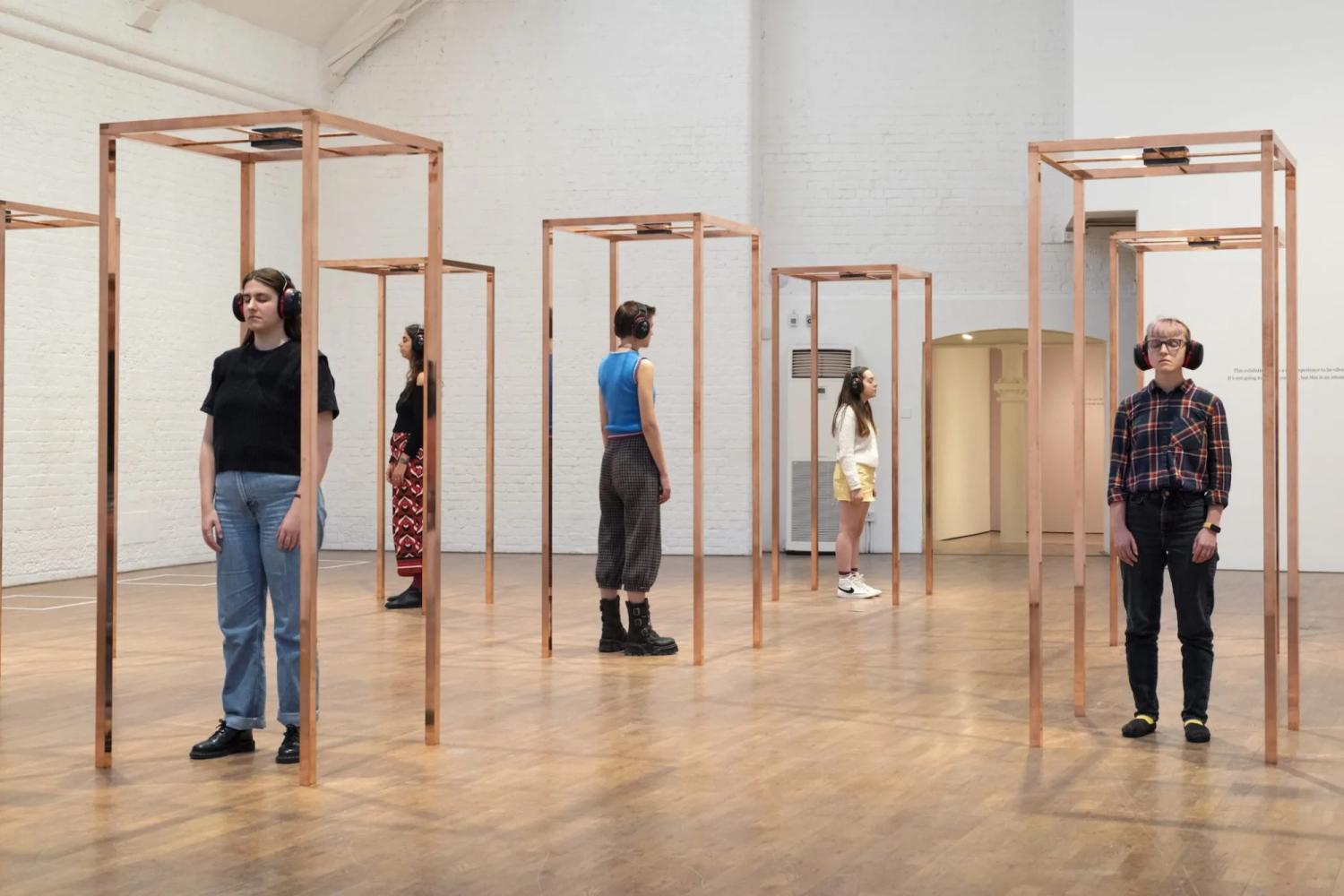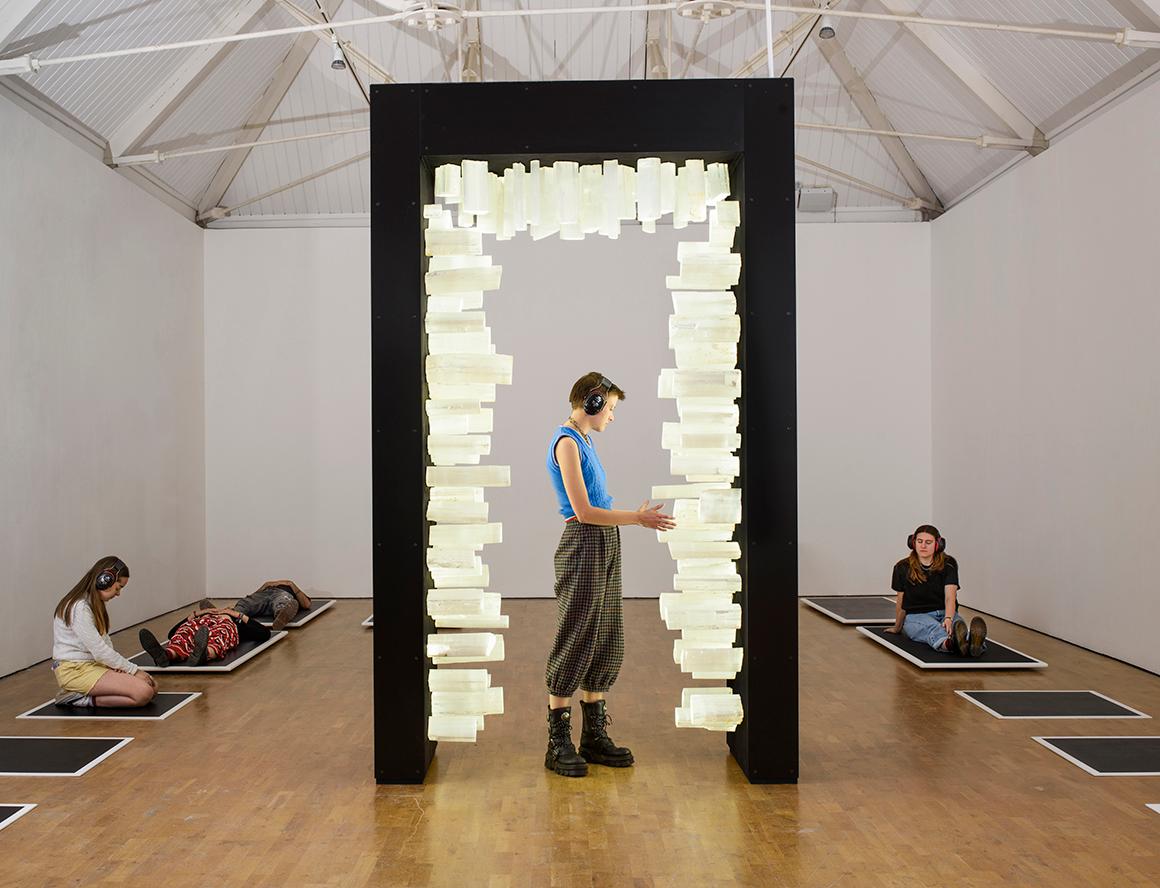Holding Hands in the Museum

How often do you feel like you are being looked after, truly cared for? Maybe it happens at home when a loved one tells you to put your feet up while they make you a mug of tea and bring you a big bowl of expensive crisps. Something good is on the TV and you are left to veg out while they cook dinner. Maybe you’re at a spa and manage to forget about the stresses of your job while someone works out the kinks in your tired shoulders. Afterwards, you lounge about in a fluffy white dressing gown drinking glasses of champagne and gossiping with your best friend. (I’ve never been to a spa so I hope this description – aided largely by American romcoms – is striking a chord.)
I wasn’t expecting to feel looked after at an art gallery. I love visiting exhibitions and often find them moving, stimulating, sometimes fun. But between the stark white walls of contemporary galleries and the fusty grandeur of former palaces and private collections, I’m not sure I’ve ever felt that I am being cared for. At best, I am being considered: some comfortable seating, legible texts, enough space to move around without accidentally backing into another person or work of art. But do I feel like the art gallery cares about me personally? More than just one in a mass? Probably not.
I didn’t realise until visiting performance artist Marina Abramović’s exhibition at Modern Art Oxford just how good it feels to be looked after in a public space. For no-one to expect anything of you and to surrender yourself to someone else’s decision-making. Before you enter the galleries, you also surrender your belongings, including any phones or watches. Time, you are told, is not something you should bring with you. For this exhibition, contrary to her most famous performance The Artist is Present, the artist is not present. Instead, Abramović encourages you to be. The result is a collective experience of mindfulness and meditation which I found surprisingly moving.
As an adult, it is a strange feeling to have another adult, a stranger even, take you by the hand and lead you gently around a room. The facilitators, trained in the ‘Abramović method’, lead you through the experience using gentle gestures to demonstrate the action they would like you to perform: put on your noise-cancelling headphones, come this way, close your eyes. I realised it made me a little emotional. Living in busy London where I don’t even know my neighbours’ faces, let alone their names, I have never thought I was lonely. And yet, the kindness I felt in the facilitators’ willingness to extend this gesture of intimacy, to hold hands with the general public, was novel to me.
I loved being looked after. I was visiting the exhibition with two old friends that I hadn’t seen in over five years and the activity was my recommendation. Normally such a situation would make me nervous: what were they thinking, were they enjoying themselves, should we move into the next room now? But, at least for the majority of the exhibition, there were no choices to be made. It was almost blissful that I didn’t know where they were and I couldn’t control how long to stay. And so I stayed much longer than I would usually be comfortable to. I allowed myself to sink into my body, to feel my dodgy left knee and, the assumed cause, my feet rolling in towards each other. I became aware of an ache in my left shoulder; the blood rushing into my hands as they dangled beside my thighs; my still-fresh chewing gum, spicy mint against a loose tastebud. I relaxed my tummy and felt it press out against the front of my dungarees.

I felt the space around me and thought about the other people who had been held by this space. I don’t know if it counts as being present if you are also thinking about the past and future, but when I meditate I always feel hyper-aware of the fleeting nature of each of the moments that together add up to a lifetime. Recently, I saw a clip from an old mockumentary filmed at a school and I was shocked when I could tell it was from the 90s by the children’s accents. It was the first time I’d realised that people’s accents have changed during my lifetime. That what was my present is now definitely in the past. It was a different time, and maybe the space around me felt different then. My body certainly did. In another twenty years will I remember how my body feels now?
For me, the exhibition allowed me to put into words what my life – and maybe the lives of others like me – is missing. I want a place I can go to where people may not know me, but they care about me. Maybe what I am experiencing is a lack of community, the transience of big city life. Maybe this is what people get from places of worship, but I don’t want the accompanying religious doctrine. Maybe it’s what occurs when you are given permission to slow down, to spend time in a place with no agenda, where your anonymity doesn’t mean that you fade into the background and where you are treated exactly the same as the next person – as though you matter.
Over time, this unusual intimacy with strangers started to feel natural. After sitting in silence blindfolded for an undefined period of time, one of my friends felt a facilitator touch her shoulder. Removing her blindfold, she saw the facilitator holding her hand out, smiling. Without thinking now, she reached out and held the facilitator’s hand as if this was the most natural thing in the world. “No,” the facilitator shook her head gently, “I was asking for your blindfold.”
